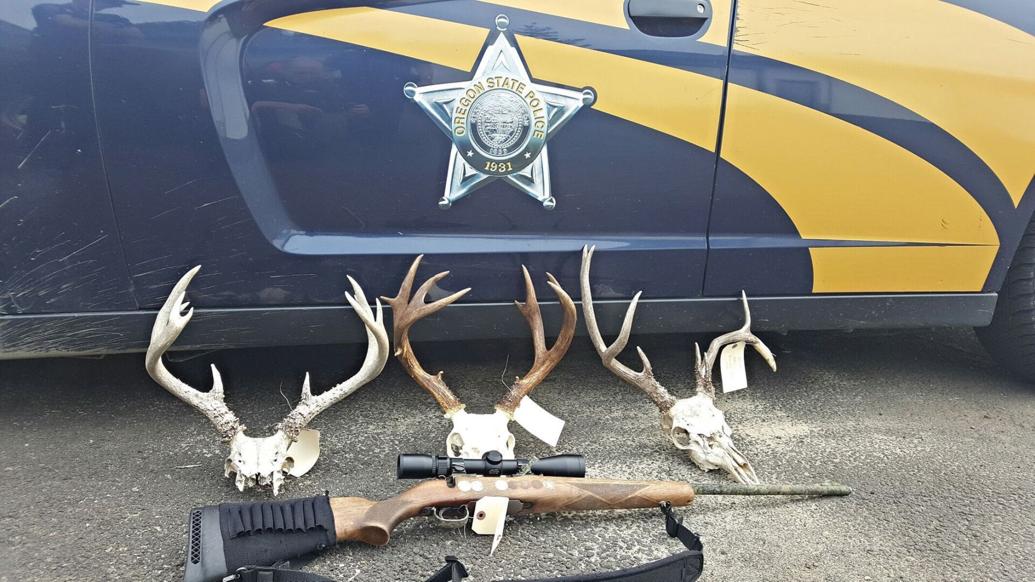Oregon has a poaching problem. In fact, a 2018 Oregon Department of Fish and Wildlife study found more mule deer were killed by poachers in south-central Oregon than were taken by licensed hunters most years. In 2022, the state saw 5,000 animals killed illegally across fish and wildlife—but only 5% of these poaching crimes are identified and prosecuted.
In an effort to curb the illegal taking of wildlife, Oregon launched a statewide poaching campaign earlier this month to educate the public about recognizing poaching and how to report poachers through a tip hotline.
Now, the Department of Fish and Wildlife has also started offering double the reward paid to any informants who report poachers.
Poaching cases range from shooting animals out of season to the illegal harvesting of sturgeon eggs, which are sold as caviar on the black market. The incidents generally occur in rural settings or behind closed doors, with the unregulated sale of fish and wildlife mostly taking place online.
The main motivation? The adrenaline rush— and the money. In-demand animal parts, such as bear gall bladders and sturgeon eggs, can be sold for a hefty profit online.
But the rampant poaching is hurting struggling species, such as salmon.
"Oregon State Police Fish and Wildlife troopers only find a fraction of these crimes that occur. These are crimes with voiceless victims," Yvonne Shaw, the anti-poaching campaign coordinator for the Oregon Department of Fish and Wildlife, told KLCC.
Salmon populations across the Pacific Northwest have been severely affected by development, pollution, invasive bass, and climate change. Native American groups have worked for years to help restore the dwindling populations.
Shaw told KLCC, though, that last year alone, officials found that over a thousand salmon had been illegally taken out of state waterways, typically by people who are going over the bag limit or snagging fish illegally.
The Solution
Oregon's new anti-poaching program, Protect Oregon's Wildlife, teaches users what poaching can look like, whether it's people taking crabs from the beach, catching fish beyond the daily limit, or hunting illegally. The website lays out what happens to poachers who are caught and provides ways for users to anonymously report poachers, including a hotline and an online form.
The program also rewards people who report poachers, including cash rewards based on the species being poached, and hunter preference points that can be applied to a legal hunting opportunity.
While hunters have a role to play in wildlife conservation, poachers can have devastating impacts on wildlife and are one of the primary reasons the animals face extinction.
The new poaching campaign is in response to anti-poaching legislation passed by Oregon in 2019 after the Oregon Hunters Association and Defenders of Wildlife lobbied to increase recognition, reporting, and prosecution of these crimes. The Protect Oregon's Wildlife website is the first step in increasing awareness of poaching and will be followed by informational blogs, videos, and partnerships aimed at helping the public identify and report poaching.
"We depend on reports from citizens to catch poachers. Together, we can ensure that Oregon's diverse ecosystems thrive for present and future generations," Lt. Craig Heuberger, of Oregon State Police Fish and Wildlife Division, told Protect Oregon's Wildlife.
"Our wildlife belongs to everyone, and we cannot afford to look away. We encourage everyone to learn more about poaching to safeguard the beauty and biodiversity of our great state."
READ MORE: What Happens to Fish and Game That Gets Confiscated From Poachers?




